Margashirsha Shuklapaksha 2, Kaliyug Varsha 5115

It is reported in the Press that Government of India proposes to introduce Prevention of Communal and Targeted Violence (Access to justice and reparations) Bill, drafted in 2001 which is flagrantly violative of the right to equality and patently discriminatory being violative of Article 15(1) is proposed to be introduced in the Winter Session of the Parliament.
To put it in a nutshell the Bill is intended to give immunity to religious minorities against serious criminal offences committed by violent groups among them against the life and property of majority and penalise the majority for the crimes committed by such militant groups among minorities and in addition to reward the culprits by providing compensation at the cost of exchequer.
Therefore if it were to be introduced in the Parliament; though it is difficult even to imagine that it will be passed by the Parliament; if passed, it is would be void abinitio as it flagrantly violative of the Fundamental Right of all citizens guaranteed under Article 15. Therefore, if the Government has any iota of respect to the constitutional mandate and unity and integrity of the people, and their harmonious living, it should not be introduced in the Parliament.
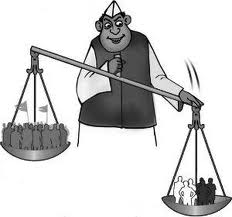
The Bill is more disastrous than the Partition of India on communal lines as it is intended to divides the people of India on communal lines; for by Partition India lost a portion of its territory but by this ill-conceived Bill divides citizens who are all children of Bharatamata, stand divided on communal lines providing instigation to the militant and violent sections of minorities to indulge in violence against majority with impunity.
The various provisions of the Bill drafted in 2011 indicate that only minority group can be the victim of communal and targeted violence and only the majority indulge in or instigating communal violence. It is preposterous to presume, that the majority instigates violence against minority and not vice versa.
The proposed Bill is unconstitutional in view of the constitution bench judgment of the Supreme Court of India in which an exactly similar classification was struck down as voilative of Article 15 of the Constitution(State of Rajasthan vs. Thakur Pratap Singh; AIR 1960 SUPREME COURT 1208)
Shortly after the commencement of the Constitution congress Government of Rajasthan issued a notification under Sec. 15(5) of the Police Act after having levied the cost of additional Police force stationed in certain villages, on the local citizens granting exemption to Muslims and harijans from such levy. The constitution bench of the Supreme Court of India stuck down the said notification. Relevant portion of the judgment reads:-
The State of Rajasthan in defence of the exemption stated thus …. “The Harijan and Muslim inhabitants of these villages have been exempted from liability to bear any portion of the cost of the additional force not because of their religion race or caste but because they were found to be peace loving and law- abiding citizens, in the 24 villages where additional force has been posted” ..
The Supreme Court rejected the defence thus:-
“It would be seen that it is not the case of the state even at the stage of the petition before the High Court that there were no persons belonging to the other communities who were peace loving and law abiding, though it might very well be , that according to the state, a great majority of these other communities were inclined the other way. If so, it follows that the notification has discriminated against the law- abiding members of the other communities and in favour of the Muslim and Harijan communities, ( assuming that every one of them was ‘ peace loving and law-abiding) on the basis only of “caste” or “religion” . If there were other grounds they ought to have been stated in the notification. It is plain that the notification is directly contrary to the terms of Article 15 (1), and that Para 4 of the notification has incurred condemnation as violating a specific constitutional prohibition. In our opinion, the learned judges of the High Court were clearly right in striking down this paragraph of the notification.
The present Bill proves that old habits hardly die In the light of the law down by the Supreme Court of India the present Bill in liable to be rejected at the stage of introduction itself.
Source: Organiser

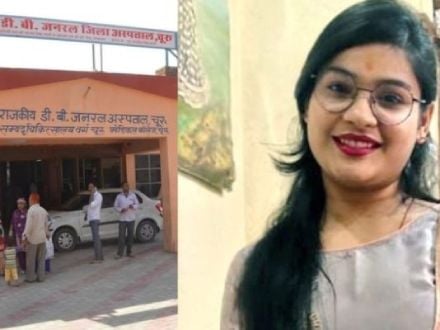 Rajasthan: Woman found hanging at a beauty parlour, Arshad, 3 others booked
Rajasthan: Woman found hanging at a beauty parlour, Arshad, 3 others booked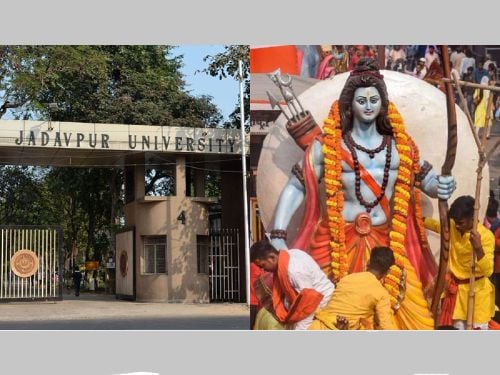 Jadavpur Univ revokes permission to celebrate Ram Navami on campus after granting it
Jadavpur Univ revokes permission to celebrate Ram Navami on campus after granting it Andhra Pradesh: Farooq kills mentally challenged Hindu man for insurance money
Andhra Pradesh: Farooq kills mentally challenged Hindu man for insurance money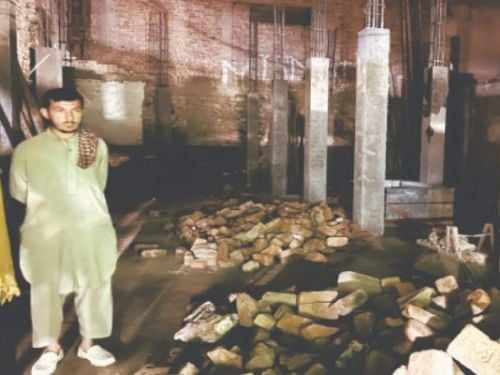 Pakistan: Ancient Hindu temple in Khyber Pakhtunkhwa demolished for commercial complex
Pakistan: Ancient Hindu temple in Khyber Pakhtunkhwa demolished for commercial complex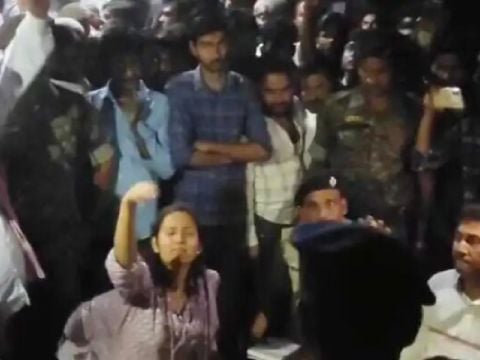 Bihar: Goddess Bhagavati Temple in Araria vandalised and deities damaged
Bihar: Goddess Bhagavati Temple in Araria vandalised and deities damaged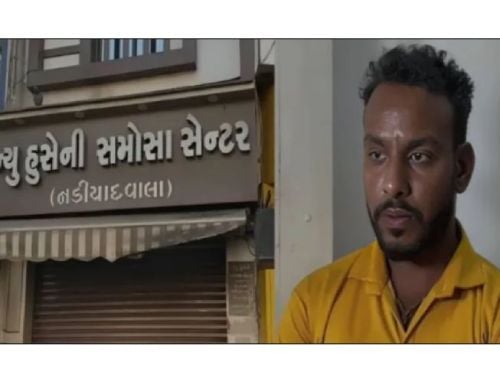 Vadodara: Beef supplier Imran Qureshi arrested in beef-stuffed samosa case
Vadodara: Beef supplier Imran Qureshi arrested in beef-stuffed samosa case